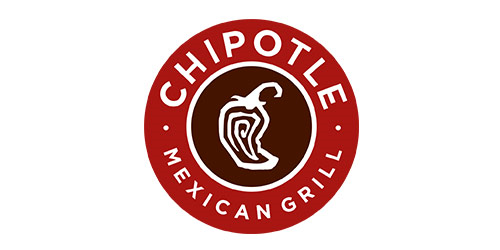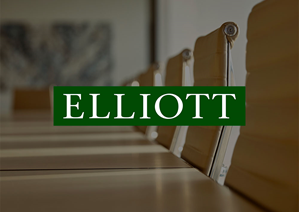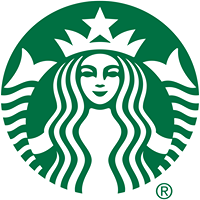Starbucks’ Bold Move: Brian Niccol Takes the Helm Amidst Turbulent Waters
August 14, 2024, 4:39 am
Starbucks has made waves with its recent appointment of Brian Niccol as CEO, a decision that has sent its stock soaring. This unexpected shift comes as the coffee giant grapples with significant challenges, including declining sales and mounting pressure from activist investors. Niccol, previously at the helm of Chipotle Mexican Grill, is now tasked with revitalizing a brand that has lost some of its luster.
The announcement, made on August 13, 2024, marks a pivotal moment for Starbucks. Niccol replaces Laxman Narasimhan, who lasted just over a year in the role. Under Narasimhan, Starbucks struggled, with shares plummeting nearly 20% this year alone. The company faced two consecutive quarters of declining comparable sales, a troubling trend that raised alarms among investors.
Niccol’s track record is impressive. Since joining Chipotle in 2018, he has overseen a remarkable turnaround, tripling the company’s stock value. His leadership style is characterized by decisive action and a focus on operational excellence. This reputation as a “fixer” makes him a fitting choice for Starbucks, which is in dire need of a strategic overhaul.
The backdrop to this leadership change is a brewing storm. Activist investors, notably Elliott Investment Management, have been vocal about their concerns regarding Starbucks’ performance. They hold a significant stake in the company and have been pushing for changes to improve profitability. The pressure from these investors has been palpable, creating an environment ripe for a shakeup.
Starbucks’ board chair, Mellody Hobson, emphasized that the decision to appoint Niccol was not solely influenced by external pressures. She stated that the board had been discussing leadership changes for months, indicating a proactive approach to addressing the company’s challenges. However, the timing of Niccol’s appointment suggests that the board is acutely aware of the urgency to act.
The coffee chain has been experimenting with its business model, shifting focus toward mobile pickup and delivery services. This pivot reflects changing consumer preferences, especially in a post-pandemic world where convenience reigns supreme. However, the transition has not been smooth. Recent reports indicated a 6% decline in U.S. comparable transactions, underscoring the need for a fresh perspective.
Niccol’s appointment is seen as a strategic move to inject new life into Starbucks. His experience in the fast-casual dining sector, particularly at Chipotle and Taco Bell, equips him with insights into consumer behavior and operational efficiency. He understands the importance of adapting to market trends and consumer demands, a skill that will be crucial as Starbucks navigates its current challenges.
The immediate market reaction to Niccol’s appointment was overwhelmingly positive. Starbucks shares jumped 24% on the news, reflecting investor optimism about the potential for a turnaround. In contrast, Chipotle’s stock took a hit, dropping 7.5% as investors reacted to the leadership change. This juxtaposition highlights the high stakes involved in corporate leadership transitions.
As Niccol prepares to take the reins on September 9, he faces a daunting task. Starbucks is not just a coffee shop; it’s a cultural icon. The brand has a loyal customer base, but it must evolve to meet changing expectations. Niccol’s challenge will be to balance innovation with the core values that have made Starbucks a household name.
The road ahead is fraught with challenges. Competition in the coffee and fast-casual dining sectors is fierce. Rivals are constantly innovating, and consumer preferences are shifting rapidly. Niccol will need to leverage his experience to differentiate Starbucks in a crowded marketplace.
Moreover, the company’s relationship with its workforce is under scrutiny. Starbucks has faced criticism for its handling of unionization efforts among employees. Niccol’s predecessor had begun to engage with union representatives, a move that could shape the company’s culture moving forward. Navigating these labor dynamics will be critical as Niccol seeks to foster a positive work environment while driving performance.
In the coming months, the board and Niccol will need to articulate a clear vision for Starbucks’ future. Investors will be watching closely for signs of a turnaround strategy. The company’s ability to adapt to changing market conditions and consumer preferences will be paramount.
In conclusion, Brian Niccol’s appointment as CEO of Starbucks is a bold move that signals a new chapter for the coffee giant. With a track record of success in the fast-casual sector, he brings a wealth of experience to the table. However, the challenges ahead are significant. Niccol must navigate a complex landscape of competition, consumer expectations, and labor relations. The stakes are high, but with the right strategy, Starbucks could reclaim its position as a leader in the industry. The coffee world is watching, and the aroma of change is in the air.
The announcement, made on August 13, 2024, marks a pivotal moment for Starbucks. Niccol replaces Laxman Narasimhan, who lasted just over a year in the role. Under Narasimhan, Starbucks struggled, with shares plummeting nearly 20% this year alone. The company faced two consecutive quarters of declining comparable sales, a troubling trend that raised alarms among investors.
Niccol’s track record is impressive. Since joining Chipotle in 2018, he has overseen a remarkable turnaround, tripling the company’s stock value. His leadership style is characterized by decisive action and a focus on operational excellence. This reputation as a “fixer” makes him a fitting choice for Starbucks, which is in dire need of a strategic overhaul.
The backdrop to this leadership change is a brewing storm. Activist investors, notably Elliott Investment Management, have been vocal about their concerns regarding Starbucks’ performance. They hold a significant stake in the company and have been pushing for changes to improve profitability. The pressure from these investors has been palpable, creating an environment ripe for a shakeup.
Starbucks’ board chair, Mellody Hobson, emphasized that the decision to appoint Niccol was not solely influenced by external pressures. She stated that the board had been discussing leadership changes for months, indicating a proactive approach to addressing the company’s challenges. However, the timing of Niccol’s appointment suggests that the board is acutely aware of the urgency to act.
The coffee chain has been experimenting with its business model, shifting focus toward mobile pickup and delivery services. This pivot reflects changing consumer preferences, especially in a post-pandemic world where convenience reigns supreme. However, the transition has not been smooth. Recent reports indicated a 6% decline in U.S. comparable transactions, underscoring the need for a fresh perspective.
Niccol’s appointment is seen as a strategic move to inject new life into Starbucks. His experience in the fast-casual dining sector, particularly at Chipotle and Taco Bell, equips him with insights into consumer behavior and operational efficiency. He understands the importance of adapting to market trends and consumer demands, a skill that will be crucial as Starbucks navigates its current challenges.
The immediate market reaction to Niccol’s appointment was overwhelmingly positive. Starbucks shares jumped 24% on the news, reflecting investor optimism about the potential for a turnaround. In contrast, Chipotle’s stock took a hit, dropping 7.5% as investors reacted to the leadership change. This juxtaposition highlights the high stakes involved in corporate leadership transitions.
As Niccol prepares to take the reins on September 9, he faces a daunting task. Starbucks is not just a coffee shop; it’s a cultural icon. The brand has a loyal customer base, but it must evolve to meet changing expectations. Niccol’s challenge will be to balance innovation with the core values that have made Starbucks a household name.
The road ahead is fraught with challenges. Competition in the coffee and fast-casual dining sectors is fierce. Rivals are constantly innovating, and consumer preferences are shifting rapidly. Niccol will need to leverage his experience to differentiate Starbucks in a crowded marketplace.
Moreover, the company’s relationship with its workforce is under scrutiny. Starbucks has faced criticism for its handling of unionization efforts among employees. Niccol’s predecessor had begun to engage with union representatives, a move that could shape the company’s culture moving forward. Navigating these labor dynamics will be critical as Niccol seeks to foster a positive work environment while driving performance.
In the coming months, the board and Niccol will need to articulate a clear vision for Starbucks’ future. Investors will be watching closely for signs of a turnaround strategy. The company’s ability to adapt to changing market conditions and consumer preferences will be paramount.
In conclusion, Brian Niccol’s appointment as CEO of Starbucks is a bold move that signals a new chapter for the coffee giant. With a track record of success in the fast-casual sector, he brings a wealth of experience to the table. However, the challenges ahead are significant. Niccol must navigate a complex landscape of competition, consumer expectations, and labor relations. The stakes are high, but with the right strategy, Starbucks could reclaim its position as a leader in the industry. The coffee world is watching, and the aroma of change is in the air.


